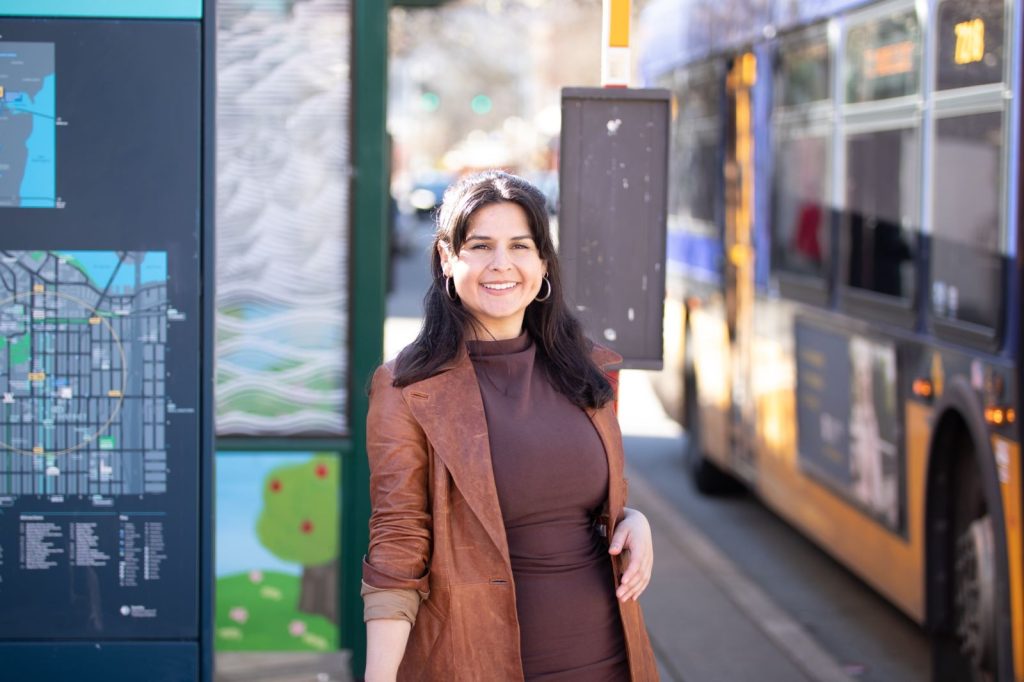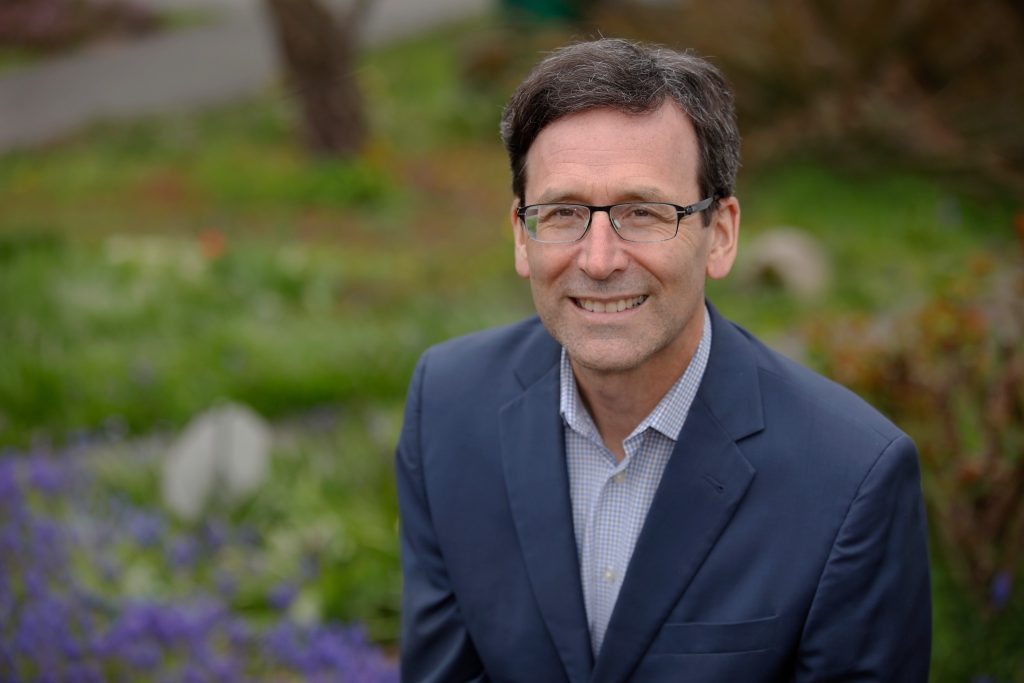
Primary election returns are pointing toward a strong year for urbanists and progressives running in Washington state. Urbanist-endorsed Pierce County Councilmember Ryan Mello appears poised to flip the Pierce County Executive for Democrats after winning more than 52% of the primary vote. Electing Mello would have big repercussions not just for policymaking in Pierce County, but also the entire region via the executive’s important perch on the Sound Transit Board of Directors.
The Urbanist Elections Committee (on which both of us sit) made Mello our headline endorsement due to the strength of his campaign and his campaign’s potential to shift Pierce County in an urbanist direction. Mello has a strong record on housing, transit, and safe streets.
Several other endorsees are in strong position heading into the general election. As a vote-by-mail state, late returns are built into the system. Election officials estimate 144,000 ballots remain to be counted statewide following Friday’s count.
Alexis Rinck opens up 11 point lead
In Seattle’s citywide special election, progressive challenger Alexis Mercedes Rinck is ahead of current seat-holder Tanya Woo in the race for City Council Position 8. Rinck has a lead of more than 20,000 votes and is sitting at 49% at Friday’s drop, and she could clear 50% after all votes are counted. Meanwhile Woo has slipped below 39%.

The strong showing for progressives could be a sign that the wave that carried centrists to victory in 2023 might have dissipated. A more progressive electorate in an even-year presidential election could also be at play, compared to notoriously conservative-leaning odd-year elections. However, Woo’s electoral struggles — despite the veneer of incumbency she was provided by being appointed to her seat — suggests that voters have not been won over by the centrist agenda.
High-powered lobbyist Tim Ceis (a former deputy mayor who now raises money for business-aligned political action committees) lobbied hard for Woo’s appointment, arguing wealthy donors had earned the right to pick the appointee for the seat vacated by Teresa Mosqueda’s election to King County Council. Ceis and his allies also argued Woo was well-positioned to hold the seat this November, but that now appears in doubt. Woo is trailing by 11 points. A big campaign spending spree orchestrated by Ceis may help close the gap, but it also could reinforce that Woo is the corporate crony candidate.
Democrats well-positioned in statewide races

The Governor’s race will be a showdown between Democrat Bob Ferguson and Republican Dave Reichert. Ferguson has a commanding lead, with more than 45% of the primary vote. Reichert has managed 27.5% of the vote, with Washington GOP-endorsed Trumpist Semi Bird pulling only 10%. Conservative-leaning Democrat Mark Mullet managed only 6% despite raising $1.3 million and having nearly a million on his behalf via a political action committee largely funded by real estate magnates and oil executives.
The Urbanist did not make a gubernatorial endorsement during the primary, after Ferguson declined to participate in the elections committee’s process. If he makes it to the Governor’s Mansion, Ferguson will have to decide how to carry on Jay Inslee’s 12-year legacy, which included passing landmark climate legislation and outspoken advocacy for increasing the state’s housing supply during the later years of his tenure.
The state Commissioner of Public Lands race was surprisingly crowded this year, with two Republicans and five Democrats vying for the seat. Initially, it looked like that mismatch may end up resulting in a Democrat being pinched out of the general election in the top two primary. The two Republican candidates lead in early returns, but Democrat Dave Upthegrove has surged past Republican Sue Kuehl Pederson and is currently trailing only Jaime Herrera Beutler, setting up the final D versus R showdown. Urbanist-endorsed Patrick DePoe has won 14% of the vote, finishing third.
Urbanist-endorsed Nick Brown advanced in a three-way race to succeed Ferguson at the state’s Attorney General, garnering 35% of the vote to State Senator Manka Dhingra’s 22%. Brown will face Republican Pete Serrano, who pulled in 42% of the vote.
Insurance Commissioner is not a race traditionally associated with planning issues, but State Senator Patty Kuderer, currently the chair of the Senate’s Housing Committee, looks primed to prevail in her race as well, garnering 45% to fellow Senator Phil Fortunato’s 28%. Kuderer’s departure from the Senate would trigger an appointment to be made by the King County Council, after a recommendation is made by the 48th District Democrats.
Olympia headed for an infusion of progressive talent

With so many state lawmakers retiring at the end of 2024, the August primary results point toward a full lineup of new progressive voices at the Washington Legislature next year. Not only do the Democratic caucuses in both the House and the Senate look poised to increase their majorities — potentially even to the level of supermajorities — but many of the candidates on track to head to Olympia ran directly on issues like housing reform and support for progressive revenue sources.
Shaun Scott is far ahead in Legislative District 43 for the open house seat vacated by Frank Chopp’s retirement. Some pundits had been ready to concede the race to centrists, arguing that a durable conservative shift had occurred in the Seattle electorate. With 56% of the primary vote, Scott will head into the general election well ahead of We [Heart] Seattle activist Andrea Suarez, who edged out Seattle Times endorsed Daniel Carusello by 4.7 points. It turns out LD43 remains fertile ground for progressives. If elected, Scott will join pro-housing stalwart Nicole Macri as a seatmate, after Macri faced no challenger in the primary.
Speaking of housing champions, Representative Jessica Bateman, the architect of Washington’s 2023 Missing Middle law, looks to be headed to the State Senate after an impressive 69% showing in a three-way all-Democratic primary in Olympia’s 22nd Legislative District. All signs also point to her current House seat being filled by Lisa Parshley, who follows in Bateman’s footsteps as a current Olympia City Councilmember. Parshley leads fellow Democrat Syd Locke 65% to 32%, as of Friday’s drop.
On the Eastside, Issaquah Councilmember Victoria Hunt came out ahead as the leading Democrat in the race for the open House seat in the 5th Legislative District. She will go on to challenge Republican Mark Hargrove, but with over 55% of the primary’s vote share going to Democrats in that race, Hunt has a significant edge. The Urbanist endorsed underdog Kristiana de Leon in the race, but Hunt has made her pro-housing bona fides clear during her time on the Issaquah City Council.
In LD45, long-time incumbent Rep. Larry Springer also appear to have a tight race on his hands and is sitting below 50%. Urbanist-endorsed Melissa Demyan is trailing by just 2.7 points, suggesting she is within striking distance if her campaign can continue to build momentum heading into November.


